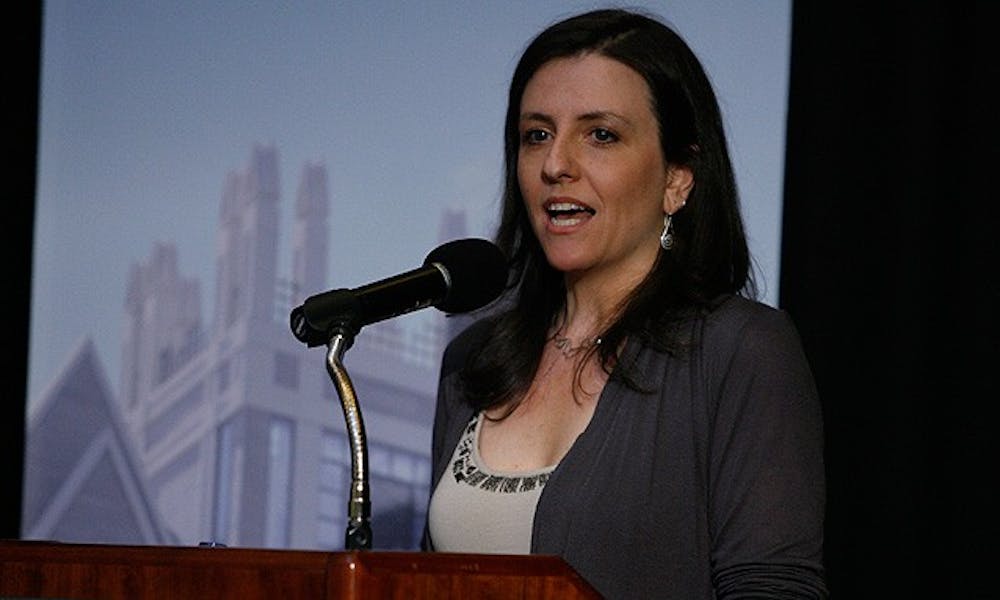Henrietta Lacks was diagnosed with cervical cancer in 1951. During the course of her treatment, a tissue sample was taken from her cancerous tumor without her consent.
In the 60 years after her death, her cells—unbeknownst to Lacks or her family—have been used to assist the development of the polio vaccine as well as drugs for other diseases.
Wednesday evening, science writer Rebecca Skloot spoke to a packed audience of mostly adults and professionals in the Fleishman Commons in the Sanford School of Public Policy about her most recent New York Times best-seller, “The Immortal Life of Henrietta Lacks.”
Skloot told of how Lacks—a poor black tobacco farmer living in the Jim Crow South—unwittingly contributed the first immortal cells to scientific research. Immortal cells are those that can be frozen and replicated indefinitely and shared among the scientific community for research.
Named HeLa cells after Henrietta Lacks, the novel tissue samples quickly became highly commercialized.
“There’s no way of knowing exactly how many of Henrietta’s cells are alive today,” Skloots said, reading from her book. “One scientist estimates that if you could pile all the HeLa cells ever grown onto a scale, they’d weigh more than 50 million metric tons—the equivalent of at least 100 Empire State Buildings.”
Although these genes have created a multimillion dollar industry and benefited the careers of the white doctors who took and replicated the sample, the descendents of Henrietta Lacks do not have access to health care and continue to fight poverty, Skloot noted. They have not benefited at all from Lacks’ contribution to medical research and cannot afford the drugs that their mother helped create, Skloot said.
Skloot went on to describe the history of HeLa cells as one that raises poignant issues concerning embedded racism in the 1950s South as well as one about medical ethics.
“Henrietta—whose legacy involves the birth of bioethics and the grim history of experimentation on African-Americans—is all but forgotten,” Skloot said.
The harvest of Lacks’ cells more than half a century ago continues to have repercussions today. One of Lacks’ daughters, Deborah, is mentally disabled and has difficulty understanding how her mother is “still alive.”
“[She] believed that her mother was brought back by an angel ... to help people,” Skloot said.
Ken Fujiwara, a research technician for the Center for Applied Genomics and Technology, said he thought the speech was “eye opening.”
“Coming from the community that does research on these cells, I think [where the cells came from] is quite important to know,” Fujiwara said.
Skloot doesn’t see a future in which individuals, like Lacks, are rewarded for their medical contributions, but is nevertheless disappointed by the current situation.
Right now, the health care industry benefits at the expense of individuals who contributed to discoveries but are unable to partake in the benefits because they lack health care coverage, she noted. Skloot said in an ideal world everyone should be able to partake in the benefits of medical advances.
Get The Chronicle straight to your inbox
Sign up for our weekly newsletter. Cancel at any time.

